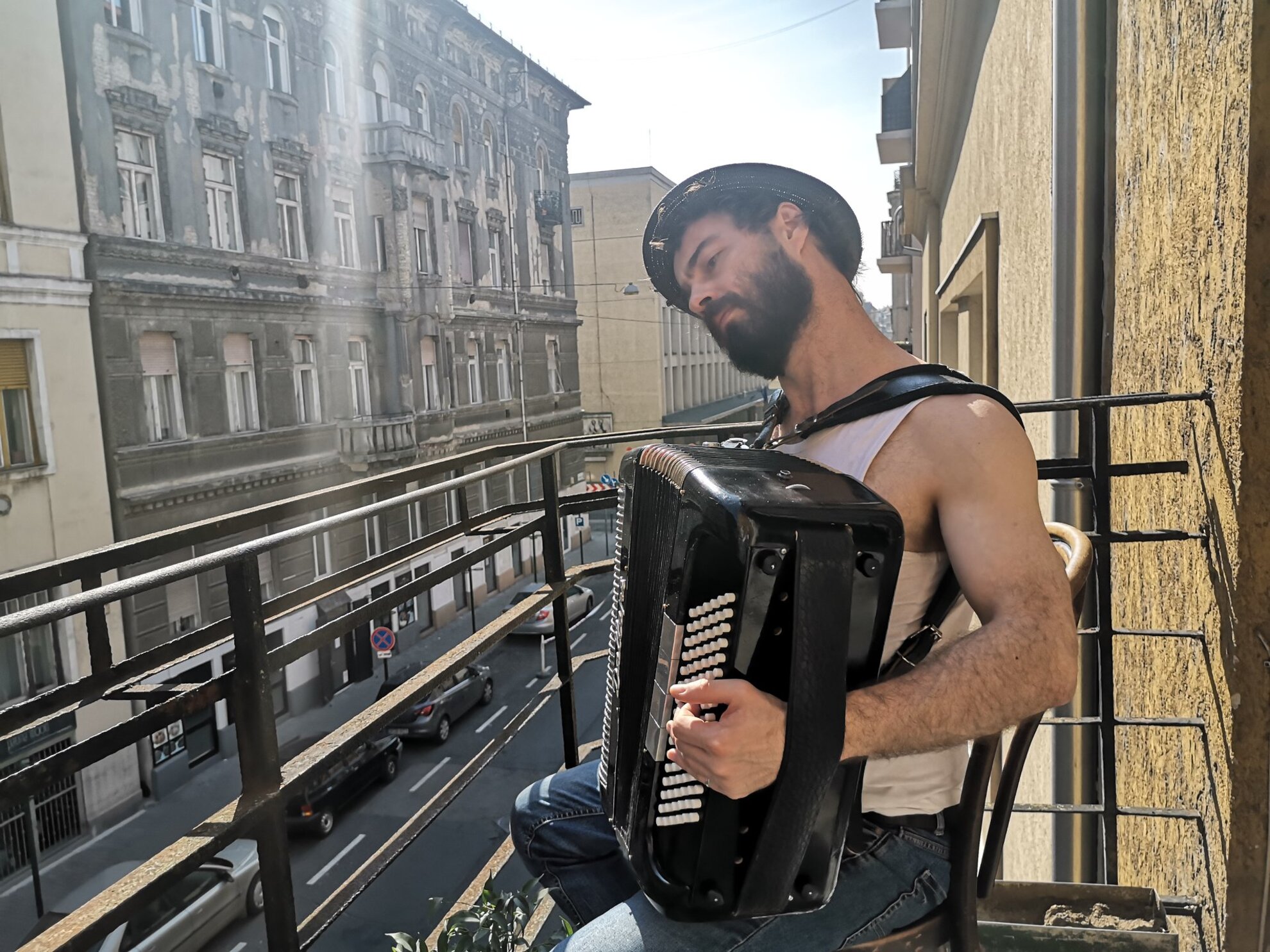Ádám Móser has been playing the accordion since he was a child. Now, performing his own compositions, he stands on his balcony every day at 5pm, entertaining the locals of Újlipótváros in north Pest with his tunes. He broadcasts his concerts online, encouraging everyone to stay home. We spoke with Ádám about his motivation, his music and the meaning of quarantine.
We Love Budapest: How long had you been in quarantine before you walked out to give your first balcony concert?
Ádám Móser: I don’t think of it as quarantine, I just think it’s better not to walk around outside. It’s a very simple message for everyone to stay home. And I will adhere to that as much as possible. I held my first mini-concert on the balcony on 14 March. I’ve been playing every day since then.
WLB: Exactly which street do you live on, in which part of Újlipótváros?
ÁM: It’s not a secret, but I don’t want to find out exactly where I live. A few people still come here to listen live, but it’s all about everyone staying home. I broadcast it live to make it available to everyone.
WLB: How long have you been playing music and in what style?
ÁM: I started as a child, I learned the basics at music school. I graduated from ELTE with a degree in comparative literature and Hungarian, and I did not take up music at higher level. I learn a lot from those I play with and I find my own voice on my instrument and in the music I write as well. I’ve been working for years to find my own voice, both as a musician and a composer.
I play a lot of places. I have a solo show that is quite similar to what I usually play on the balcony. A one-hour concert works completely differently than giving a ten-minute mini-concert every day, but we can say that my solo material is essentially the same as the balcony concerts. Many people ask in comments if I play soundtracks or anything else, Edith Piaf or Piazzolla - no, I just play my own compositions. In these I mix French chanson, Argentine tango, klezmer and various kinds of Balkan music.
And I improvise a lot.
I also build my improvisation on the specifics of these musical traditions, so that the whole sound can become such a coherent whole in which the boundaries are blurred. Someone hears the same song as a Frenchman, someone as a klezmer, another as a tango. This is the essence of my music: without borders, a meeting of cultures. And improvisation makes this world of music completely free, in which intercultural interchange is completely open.
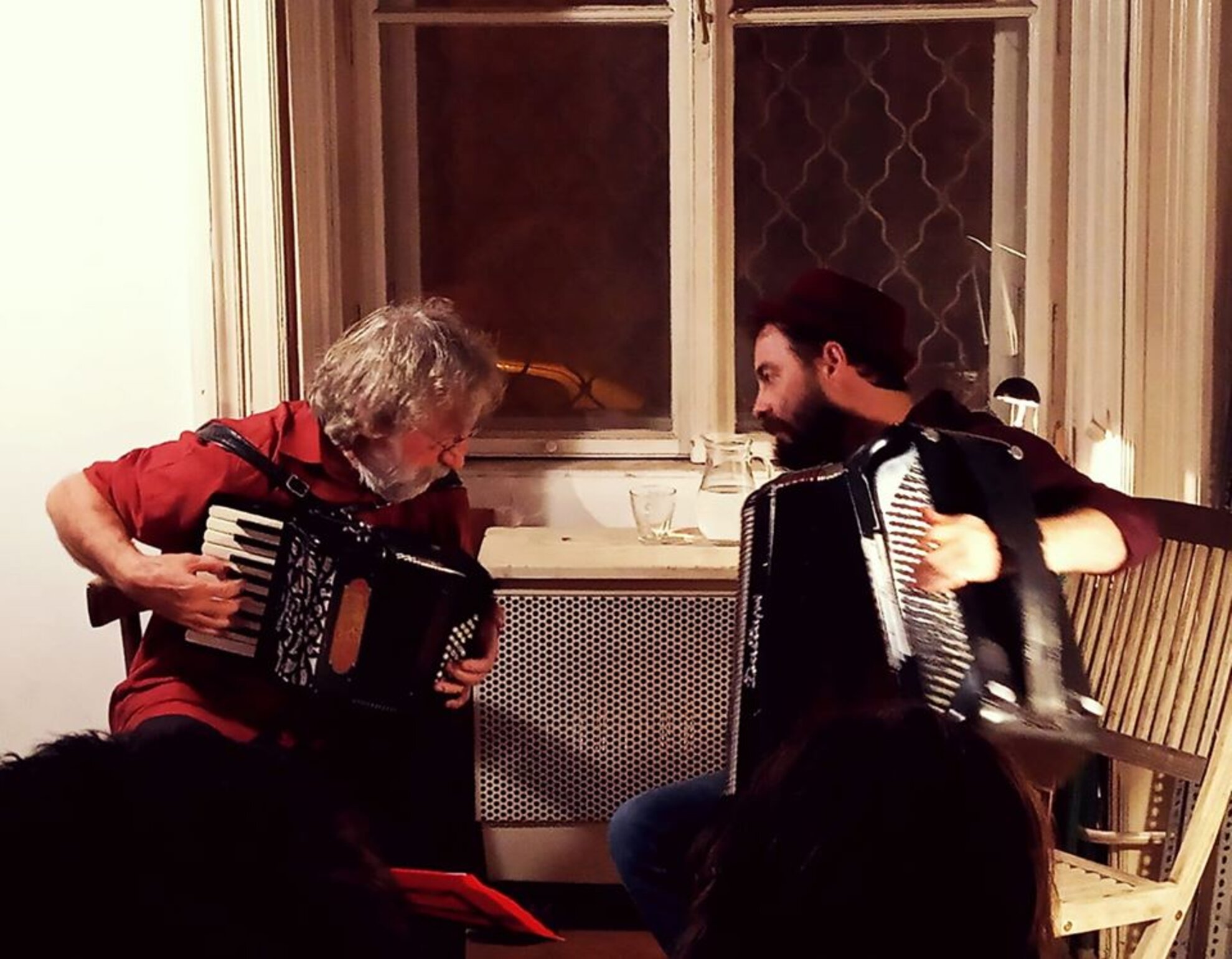
WLB: Where do you play and with which groups?
ÁM: I have a duo with my friend Endre Kertész, ¡Nosnach, in which we also play my compositions. Endre is an excellent cellist, we think very similarly about music and improvisation. It was really popular when we started playing together. I also have a duo with a French friend of mine, Miquéu Montanaro, in which Miquéu plays tango and we improvise a lot. His main instruments are flutes, actually, but he plays the accordion in the duo like me, and also sings. It’s a real honour to be able to play with him.
In addition, I play in the Sickratman Intimate Quartet, the Dávid Klezmer Quintet, Versi Varsa and Agostones led by Béla Ágoston, Szakértők with Márton Kovács. Excellent musicians, all of them. Each is its own musical world in which I feel at home.
I play in other, smaller bands, too, once which get together every now and then, are active, then hibernate. There’s also music for theatres, a huge stroke of luck, on my part, working with the likes of Márton Kovács and János Mohácsi.
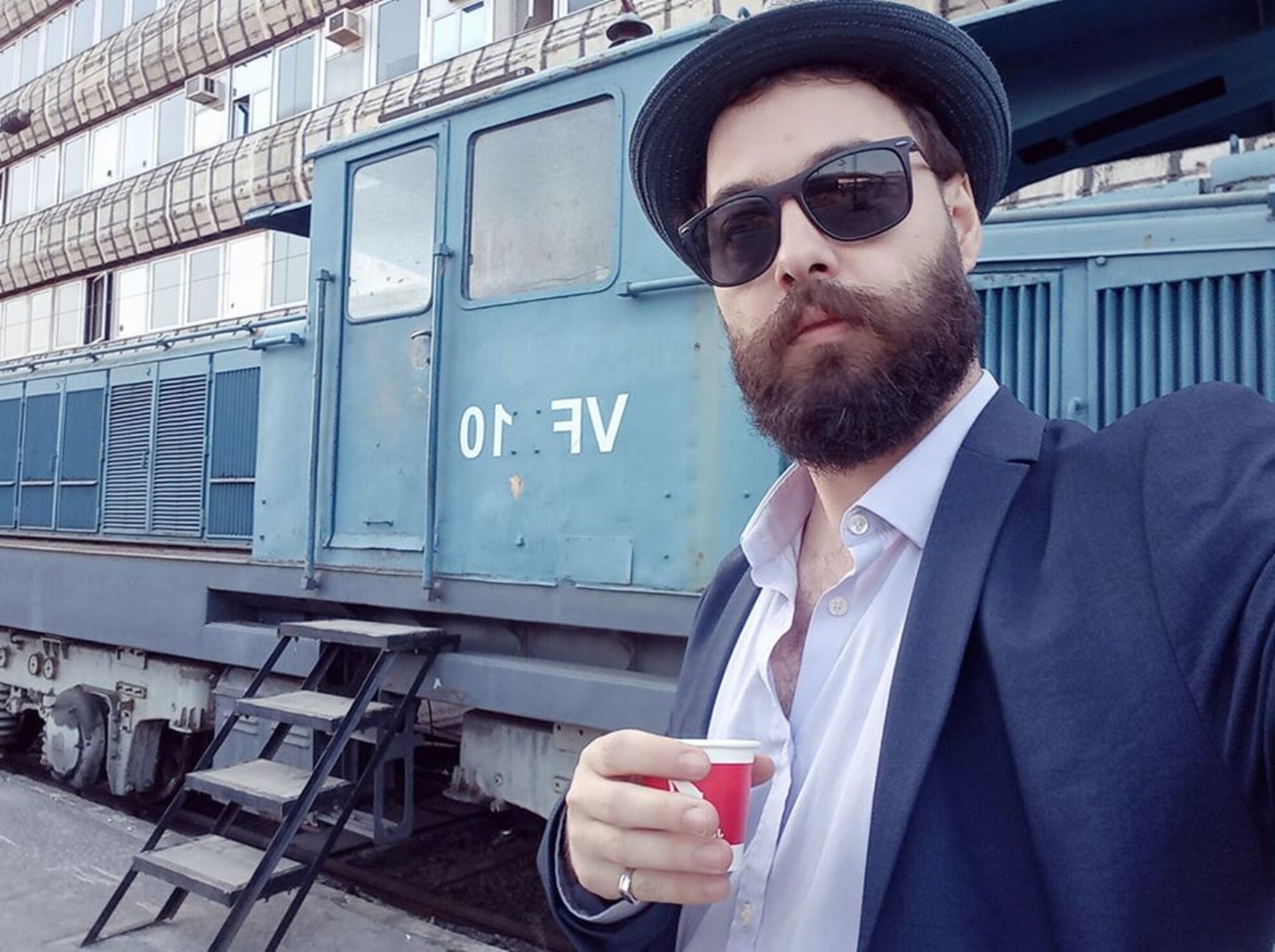
WLB: Is your livelihood now in jeopardy?
ÁM: Everyone knows that as concerts and theatres have closed, musicians have pretty much lost their source of income. The lucky ones teach, everyone is trying to find something that might keep them going until the restrictions are lifted. I don't have a job now either, I few savings, and sometimes I get a little work that I can do at home, for which I’m very grateful.
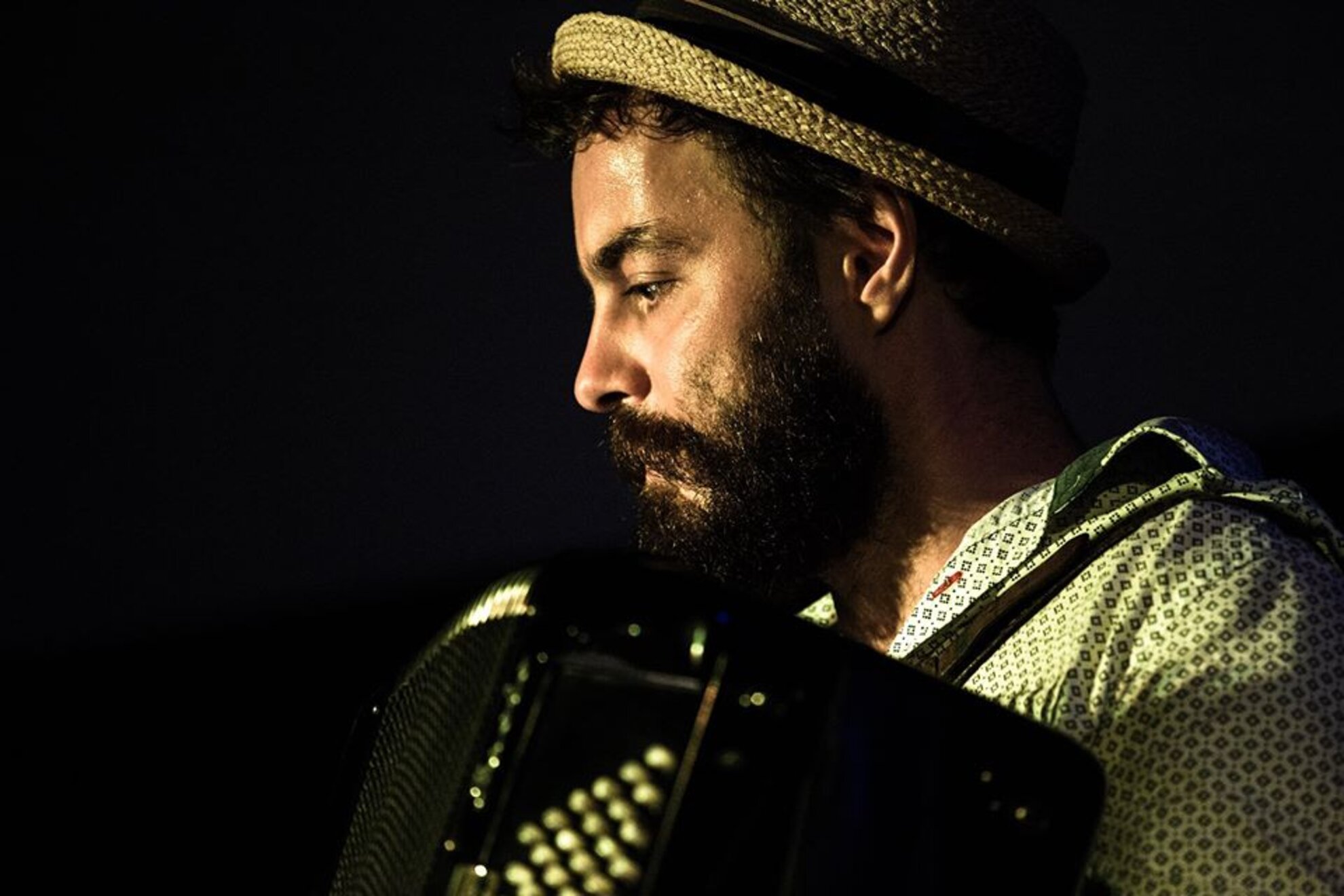
WLB: What made you stand on the balcony in the first place?
ÁM: I saw the balcony concerts in Italy. It occurred to me to do one, too. It seemed like a good idea, but I thought a single show really didn’t make sense. A few days later, I thought that if I did it every day, it might actually mean something. I don’t want to go any deeper than that, everyone has their own take. It might even mean absolutely nothing to some people. That’s fine. The main point is for everyone to stay at home as much as they can in the current circumstances. In any case, it’s a challenge to play every day. I like challenges.
I get very positive feedback from the residents of the surrounding houses, as well as from the online medium, which I am naturally happy about. My plans are to play every day until the restrictions are lifted. Of course, I may miss the concert one day or I won’t start at 5pm on the dot, but I'll let everyone know about these in advance on my Facebook page.
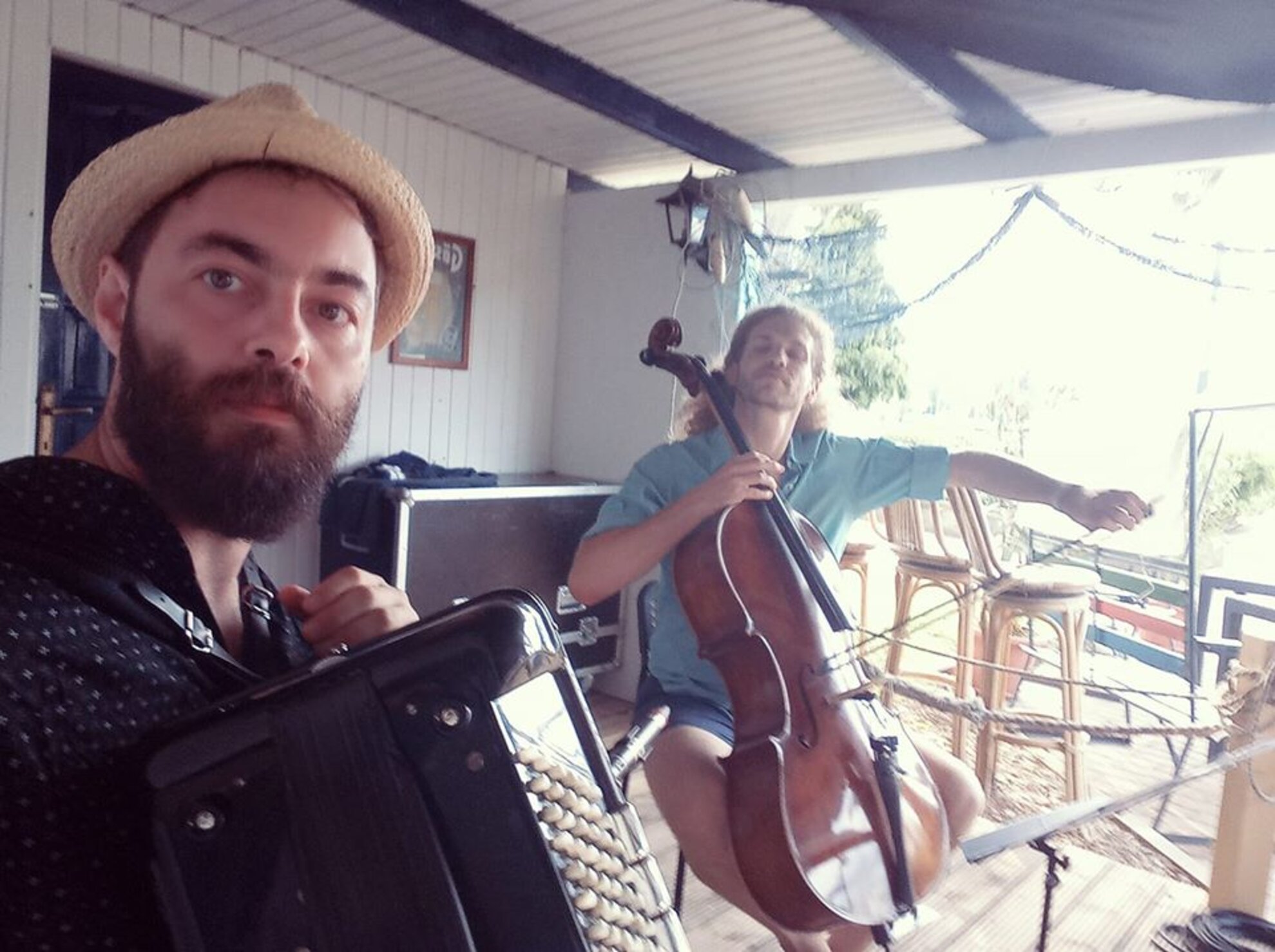
WLB: What will be the first thing you do after the epidemic?
ÁM: Play a concert, I hope!
WLB: Do you see any positive benefits of this situation in your life or immediate surroundings?
ÁM: This is hard to see now. We’ve been in this situation for three weeks now and we don’t know how long it will take. We don’t know, on any level, what kind of reserves we have. I’m sure it’s good to know that my everyday shows are a fixed point for a lot of people, and for a few minutes I might be able to ease the situation we’ve gotten into because of the virus.
A couple of weeks ago, I also had an album available on Spotify and iTunes, summarising my material from recent years. Now, as a result of the situation, I started working on my next album. Once I’m done with it, that will be available online as well.
For videos of Ádám's latest shows, see here.
